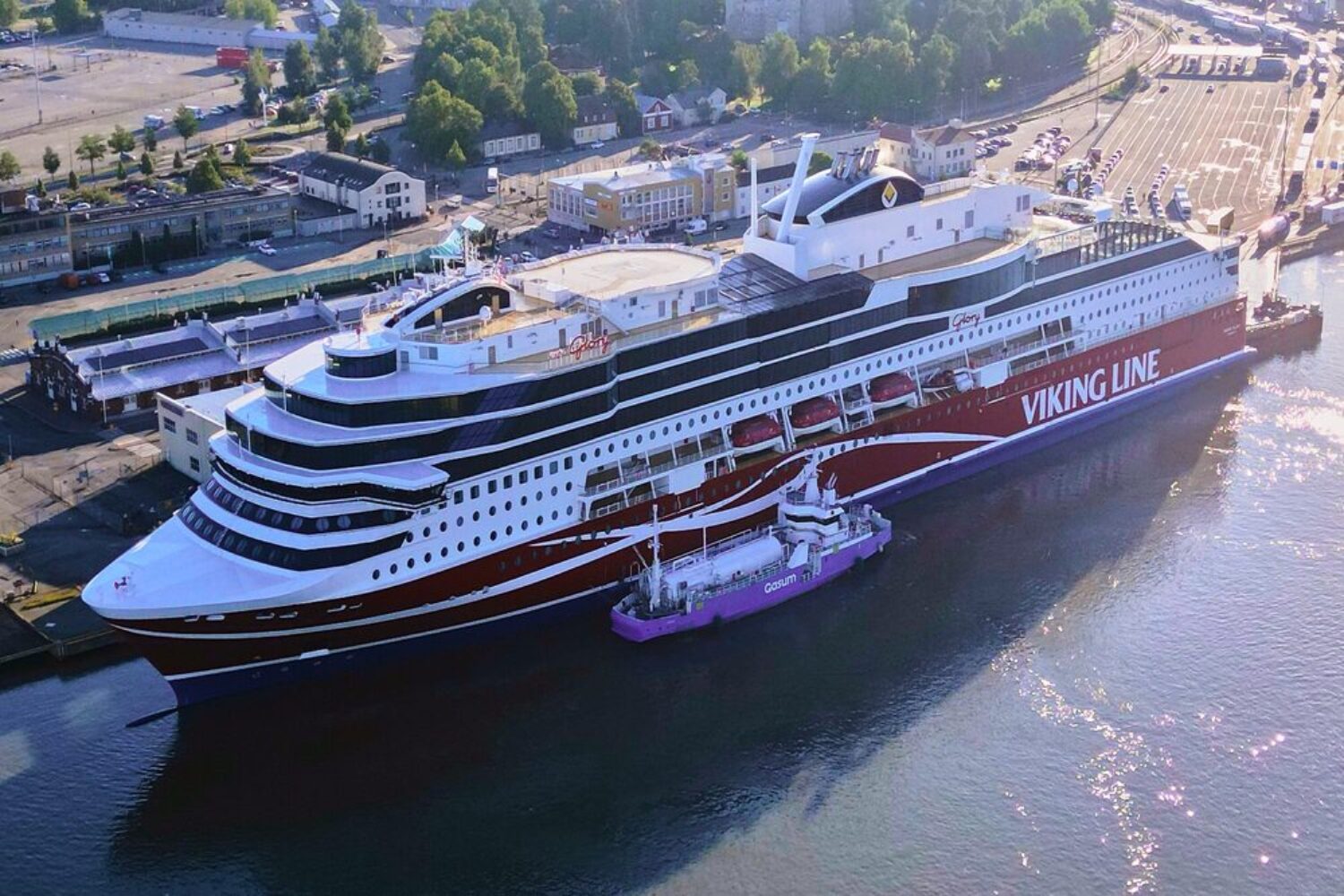The Finnish ferry operator Viking Line is massively expanding the use of biofuels and for the first time is offering all passengers and freight customers the option of traveling completely fossil-free.
The basis for this is the close cooperation with the Finnish energy company Gasum, with whom Viking Line has been developing the market for biofuels for years.
Bio-LNG for “Viking Grace” and “Viking Glory”
From the fall, Viking Line intends to increase its purchases of bio-liquefied natural gas (bio-LNG) sixfold. This would correspond to the annual fuel requirements of the “Viking Glory”. The biogas will be used on the Turku-Stockholm route by “Viking Glory” and “Viking Grace”. Conventional LNG is also used. Both fuels are free of sulphur and particulate emissions and contribute to the circular economy by using food and agricultural waste.
“The shipping company is thus contributing to emission reductions in Gasum’s pooling service for the FuelEU Maritime requirements, which is used by ships that cannot use biogas themselves,” explains Gasum Vice President Jacob Granqvist.
According to Viking Line, it already used around 10 tons of biogas in 2023, and as much as 600 tons last year. This year, the use will increase to at least 3,800 tons.
“The supply is now at a level that allows for increased use. We have secured our purchases until October and want to maintain this level,” says Viking Sustainability Manager Dani Lindberg. “In addition, the option of fossil-free travel for our customers is increasing usage.” For an additional charge, passengers, conference guests and freight customers can make their journeys completely fossil-free.
Passengers willing to pay for sustainability
According to a recent survey, 45% of Finns want to travel more sustainably in the future when choosing a sea voyage. Thanks to investments totaling €450 million in the LNG ferries “Viking Glory” and “Viking Grace”, Viking Line believes it is well positioned to pick up on this trend.
The shipping company is also involved in the development of green shipping corridors in the Baltic Sea, including on the Turku-Stockholm and Helsinki-Tallinn routes. For the latter, Viking Line presented a concept for a fully electric car ferry at the beginning of June, which could be launched in the 2030s.
CEO Jan Hanses explains: “We want to be among the pioneers when Finnish maritime transport takes the step towards a fossil-free future. Major investments in sustainable solutions require planning security and close cooperation – both within the maritime industry and with public stakeholders.”













